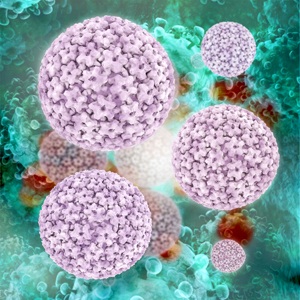
Researchers have found that two-thirds of cancer incidence of various types can be blamed on random mutations and not heredity or risky habits like smoking.
The researchers said random DNA mutations accumulating in various parts of the body during ordinary cell division are the prime culprits behind many cancer types.
They looked at 31 cancer types and found that 22 of them, including leukemia and pancreatic, bone, testicular, ovarian and brain cancer, could be explained largely by these random mutations - essentially biological bad luck.
Read: 11 women go bald for friend with cancer
The other nine types, including colorectal cancer, skin cancer known as basal cell carcinoma and smoking-related lung cancer, were more heavily influenced by heredity and environmental factors like risky behavior or exposure to carcinogens.
Overall, they attributed 65 percent of cancer incidence to random mutations in genes that can drive cancer growth.
"When someone gets cancer, immediately people want to know why," said oncologist Dr. Bert Vogelstein of the Johns Hopkins University School of Medicine in Baltimore, who conducted the study published in the journal Science with Johns Hopkins biomathematician Cristian Tomasetti.
Read: Access to cancer care: what do we need to do?
"They like to believe there's a reason. And the real reason in many cases is not because you didn't behave well or were exposed to some bad environmental influence, it's just because that person was unlucky. It's losing the lottery."
Tomasetti said harmful mutations occur for "no particular reason other than randomness" as the body's master cells, called stem cells, divide in various tissues.
Tomasetti said the study indicates that changing one's lifestyle and habits like smoking to avoid cancer risks may help prevent certain cancers, but may not be as effective for others.
Read: Cancer survivors need more exercise and less TV
"Thus, we should focus more research and resources on finding ways to detect such cancers at early, curable stages," Tomasetti added.
The researchers charted the cumulative number of lifetime divisions in the stem cells of a given tissue - for example, lungs or colon - and compared that to the lifetime cancer risk in that tissue.
Generally speaking, tissues that undergo more divisions - thus increasing the probability of random mutations - were more prone to tumors.
The study did not cover all cancer types. Breast and prostate cancer were excluded because the researchers were unable to ascertain reliable stem cell division rates.
Also read:
Many ignore cancer's warning signs
Studies probe why osteoporosis drugs may prevent cancer
Parenthood may push cancer patients to seek treatment




 Publications
Publications
 Partners
Partners















